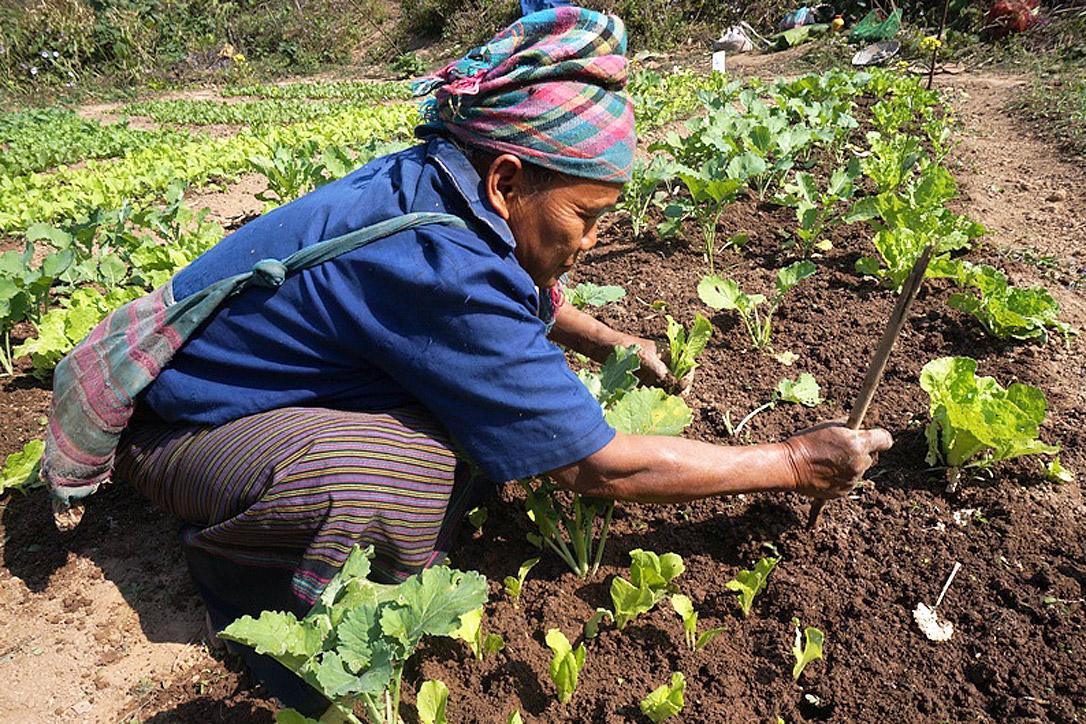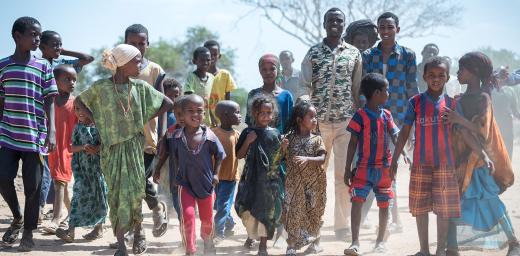Laos: New farming methods suited to climate change

A villager from Koutou employs new agriculture techniques to produce a good crop. Photo: LWF Laos
Combination of old skills and new approaches
LUANG NAMTHA, Laos/ GENEVA, 9 July 2015 (LWI) - Poverty and scarce food supply was just a fact of life for the people in Koutou village, Luang Namtha province, Laos. With most people relying on rice farming and livestock for their livelihood, there were few options for other income. Climate change and extreme weather make their lives especially difficult. Recurring drought makes them worry about every harvest, while hunger and the lack of clean water cause disease, most of which the people cannot afford to have treated professionally.
Koutou is one of 13 villages in Vieng Phoukha district where The Lutheran World Federation (LWF) started an empowerment project that promotes human rights in January 2015. To improve living conditions for the villagers, the LWF conducts vocational training and workshops in vegetable planting, bio extract manure production and composting to promote small income generation programs and improve farm yield in order to provide nutritious food and income.
“I have improved my vegetable home garden by following the instruction of the trainers and it works,” says Souk, a resident of Koutou who is only known by her first name. “‘I often make bio extract and fertilizer to water my vegetable garden because I feel that it doesn’t require complicated preparations and looking after. It is not costly and it is simple to make,” she adds.
Like the other project participants, she received vegetable seeds and gardening equipment from the LWF to start fertilizer production and home gardening. “The vegetables grow very well,” Souk says. “I can earn income from selling some of them and still have enough to cook for my children.” She also takes dried seeds from the oldest plants in order to replant them.
“Many of the villagers have their own experience and skills in vegetable gardening,” Phonexay Simayvanh, a LWF community empowerment facilitator in Koutou, says. “The new knowledge now creates more possibilities for them to earn money."
The people of Koutou have always used fertilizer to improve their yield but the chemical solution they used before severely damaged the soil’s nutrient balance. The chemicals were harmful to the farmers' health. The bio extract manure introduced by the LWF is a sustainable alternative with no risk to people’s health. Sustainability and environmentally-friendly solutions are also the main characteristics of other measures introduced by the LWF.
Previously, the people of Koutou would not re-generate indigenous seeds for further production. To cultivate rice, indigenous communities would burn the bush land and cut the trees. De-forestation had an impact on the ecology. LWF conducts awareness campaigns on environment protection, tree planting, chemical-free cultivation, climate change adaptation and mitigation, and subsequently, disaster risk reduction.
However, climate change will remain the biggest challenge in the years to come. As the risk of disaster increases, the project and the villagers aim to develop more effective and sustainable interventions, to ensure the families always have enough to eat.




